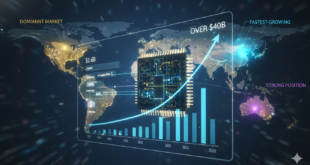There is an urgent need for sustainable food production due to a number of challenges facing the global food system. Climate change is affecting food production by altering growing conditions, reducing crop yields, and increasing the risk of pests and diseases. Sustainable food production practices can help to reduce greenhouse gas emissions, adapt to changing conditions, and mitigate the impact of climate change on food production.
The world’s population is projected to reach 9.7 billion by 2050, which will put significant pressure on food production and distribution systems. Sustainable food production can help to increase food production and improve food security in a way that is environmentally and socially responsible.
Food tech, also known as food technology, refers to the application of science, engineering, and technology to the processing, production, and preservation of food. It involves the use of modern tools, equipment, and techniques to improve the quality, safety, and efficiency of food production, as well as to create new products and processes.
Food tech innovations have the potential to improve sustainability, safety, and quality in the food industry. Some of the most promising food tech innovations include high-pressure processing, pulsed electric field technology, 3D food printing, hydroponics and aquaponics, precision agriculture and smart farming, and alternative protein sources.
Food tech companies are also exploring new ways to use data analytics, AI, and IoT technologies to improve supply chain efficiency, traceability, and quality control.
Ethical, social, and environmental considerations are important when evaluating the potential impact of food tech innovations.
Regulatory and legal issues related to novel food products and technologies must also be taken into account.
For more information about food technology please visit: Food Tech: Innovations in Food Processing and Production
Food Technology Market
The food technology market includes a wide range of technologies, products, and services related to the production, processing, and distribution of food. Some of the key areas of the food technology market include:
- Food safety and quality: This includes technologies for testing, monitoring, and ensuring the safety and quality of food products.
- Food processing and packaging: This includes technologies for processing, preserving, and packaging food products, such as thermal processing, refrigeration, and vacuum packaging.
- Functional foods and nutraceuticals: This includes foods and ingredients that provide health benefits beyond basic nutrition, such as probiotics, omega-3 fatty acids, and antioxidants.
- Agricultural biotechnology: This includes technologies for improving crop yields, developing new crops, and creating sustainable agricultural practices.
- Food delivery and e-commerce: This includes online food ordering and delivery services, as well as technologies for tracking and managing food delivery.
- Food traceability and supply chain management: This includes technologies for tracking the movement of food products from farm to table, ensuring transparency and accountability in the food supply chain.
- Food waste reduction: This includes technologies for reducing food waste and promoting more sustainable food practices, such as composting, recycling, and food recovery.
- Plant-based and alternative proteins: This includes technologies for developing plant-based and alternative protein sources, such as soy, pea, and algae-based proteins, to meet the growing demand for sustainable and ethical food products.
- Personalized nutrition: This includes technologies for providing personalized nutrition recommendations based on individual genetic and health factors, as well as data collected from wearable devices and other sources.
- Food traceability and supply chain management: This includes technologies for tracking the movement of food products from farm to table, ensuring transparency and accountability in the food supply chain.
- Food waste reduction: This includes technologies for reducing food waste and promoting more sustainable food practices, such as composting, recycling, and food recovery.
- Plant-based and alternative proteins: This includes technologies for developing plant-based and alternative protein sources, such as soy, pea, and algae-based proteins, to meet the growing demand for sustainable and ethical food products.
- Personalized nutrition: This includes technologies for providing personalized nutrition recommendations based on individual genetic and health factors, as well as data collected from wearable devices and other sources.
Food technology market
The food technology market is rapidly growing due to increasing demand for safe, healthy, and sustainable food products. The global food tech market is expected to reach a value of USD 342.52 Billion by 2027, according to recent analysis by Emergen Research.
The food technology market is expected to continue to grow in the coming years, as consumers demand more sustainable, healthy, and convenient food products. The market is also likely to be influenced by emerging technologies such as artificial intelligence, blockchain, and the Internet of Things (IoT), which can enable greater transparency, efficiency, and innovation in the food supply chain.
Food processing companies are increasingly investing in adoption and deployment of robotics and automation across processes in the food industry. This is resulting in more hygienic processes, faster production, and higher capacity output. In addition, increasing availability of fresh products and improved visibility through online channels, is resulting is rising demand and consumption, which is driving growth of the food tech market. Food industries are investing significantly in automation and digitalization in order to meet growing demand for food due to the rapid population growth. Moreover, rising demand for healthier, cheaper, and safer and more hygienic food products is driving market growth.
Growth Drivers:
- Increasing demand for safe and healthy food: Consumers are increasingly concerned about the safety and nutritional value of their food, driving demand for technologies that can improve food safety and quality.
- Advancements in technology: Advances in technology, such as artificial intelligence, machine learning, and big data, are enabling greater efficiency, innovation, and precision in food production, processing, and distribution.
- Growing population and urbanization: The global population is expected to reach 9.7 billion by 2050, driving demand for more efficient and sustainable food production and distribution methods.
- Changing consumer preferences: Consumers are increasingly seeking plant-based and alternative protein sources, as well as more personalized and convenient food products, driving innovation in the food technology market.
Restraints:
- High cost of technology adoption: Many food technology solutions require significant investment in infrastructure, equipment, and research and development, which can be a significant barrier to entry for smaller players.
- Regulatory challenges: The food technology market is subject to a wide range of regulations and standards, which can be complex and vary widely by region, creating challenges for companies operating in multiple markets.
- Consumer skepticism: Some consumers may be skeptical of new food technology products or processes, particularly those that involve genetically modified organisms or other controversial practices.
Challenges:
- Sustainability and environmental concerns: The food industry is a significant contributor to greenhouse gas emissions and other environmental impacts, driving demand for more sustainable and eco-friendly food technologies.
- Food security and access: Despite advances in technology, many regions around the world still struggle with food insecurity and lack of access to nutritious food, creating opportunities for innovative solutions.
Opportunities:
- Personalized nutrition and health: As consumers become more interested in personalized health and wellness, the food technology market presents opportunities for companies that can provide tailored nutrition recommendations and products.
- Plant-based and alternative proteins: With growing demand for sustainable and ethical food products, there is a significant opportunity for companies that can develop new plant-based and alternative protein sources.
- Food waste reduction: With an estimated one-third of all food produced going to waste, there is a significant opportunity for innovative technologies and business models that can reduce food waste and promote more sustainable food practices.
Some of the key players in the food technology market include Nestle, Danone, PepsiCo, and Unilever. Key Companies include Amazon, Apeel Sciences, McCormick & Company, Delivery Hero, DoorDash, Domino’s Pizza Inc., Goodr, Pizza Hut International, McDonald’s Corporation and Grubhub
 International Defense Security & Technology Your trusted Source for News, Research and Analysis
International Defense Security & Technology Your trusted Source for News, Research and Analysis




